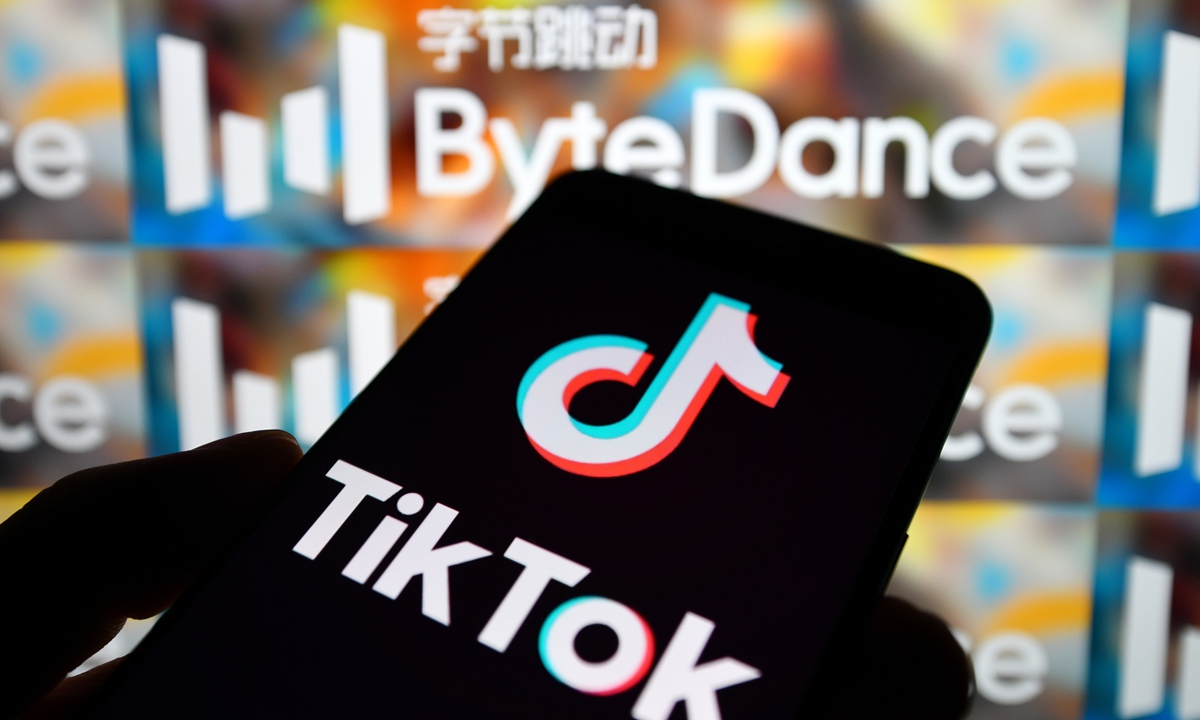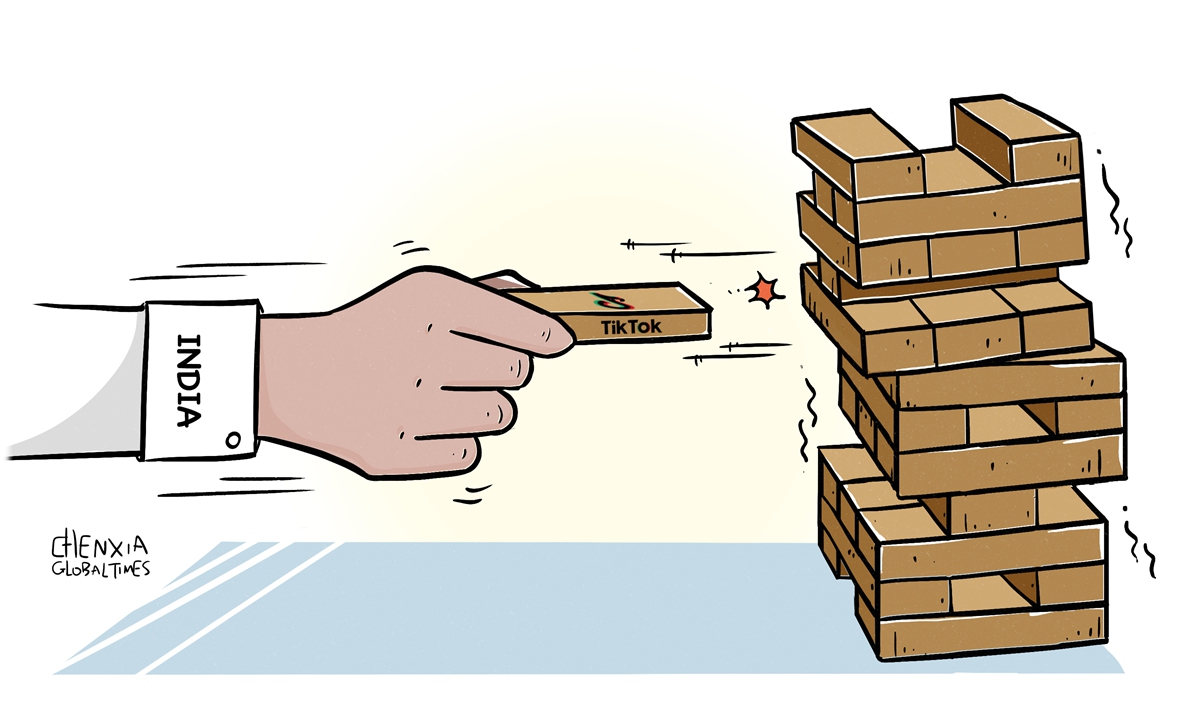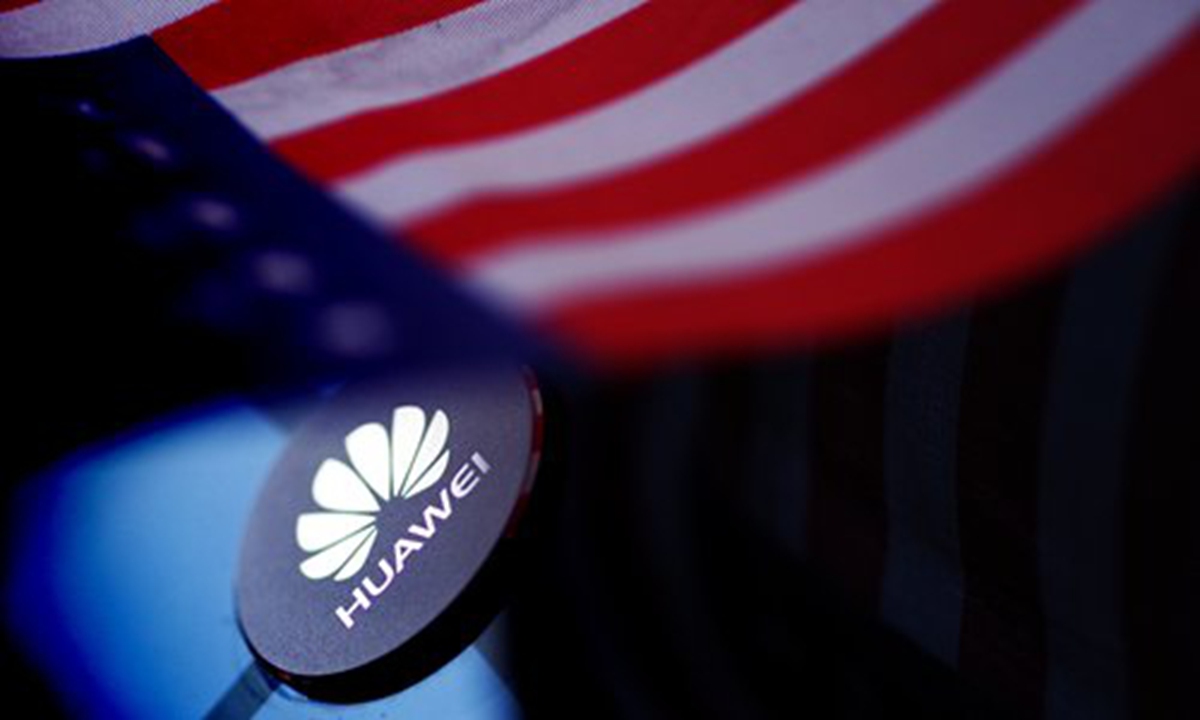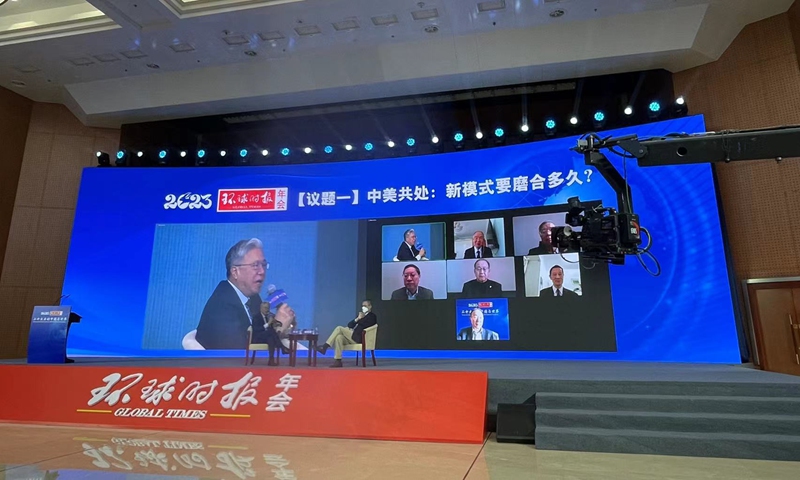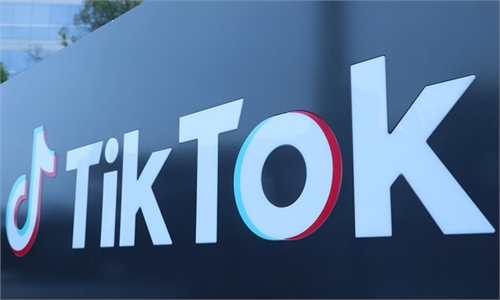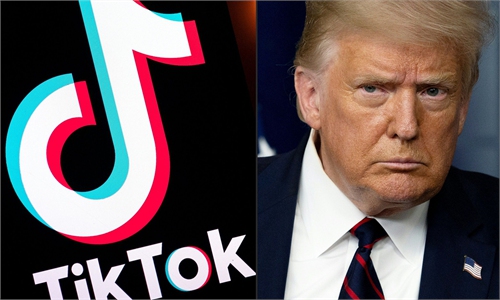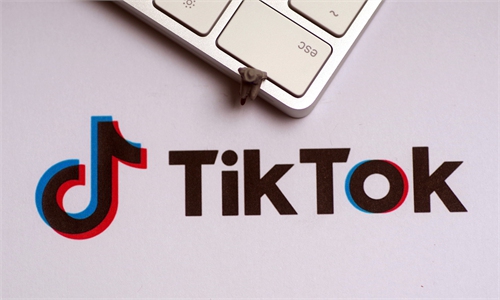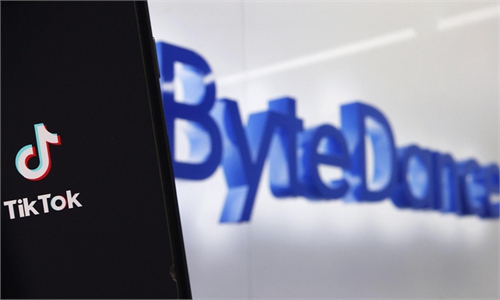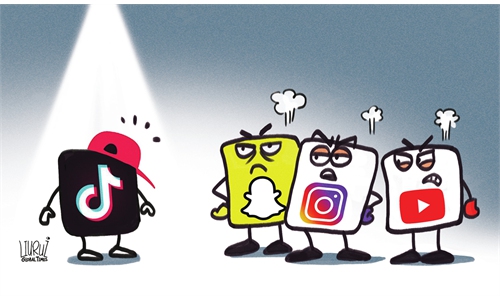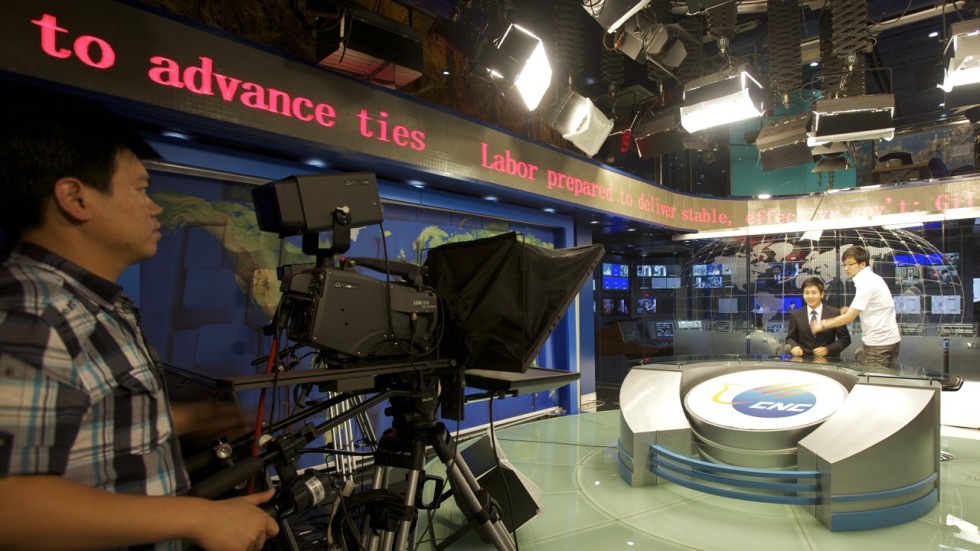The US, with around 750 military bases across the globe, warships in most oceans, which is waging a proxy war, stirring up conflicts here and there, is now vehemently making a fuss about so-called "threats" it is confronting: Earlier this month, it was balloons, and now, it is TikTok. The White House on Monday gave government agencies 30 days to ensure they do not have short-video platform TikTok on federal devices and systems, Reuters reported on the same day. In December last year, US Congress voted to bar federal employees from using the video app on government-owned devices. Now, US President Joe Biden officially tossed out the deadline. The decision is as unreasonable as Biden's order to shoot down balloons with missiles. It is a typical irrational action generated by security anxiety stemming from a kind of mental illness, Shen Yi, an international relations expert from Fudan University, told the Global Times. If the move reveals anything, it is that the US has gone hysterical in its anti-China stance while its relevant decisions have gone far beyond reality. TikTok has been trying to demonstrate its global nature. However, in the eyes of American elites, being born in China is an "original sin." Over the past years, TikTok has been questioned on whether the Chinese government has access to US user data; whether its content is censored by China; whether its stored US user data is based on US soil … However, after TikTok appropriately responded and met all these requirements, the US still claims the app is a "national security threat." In 2020, then president Donald Trump even tried to mandate that ByteDance, TikTok's parent company, strike a deal to sell TikTok's US operations. In other words, the US government has been attempting to harm this globally leading short-video platform which was not born in the US, using various excuses. The latest ban is aimed at government devices and will only affect a small portion of TikTok's users in the US, yet some observers believe that, the US is actually attempting to fan the flames of a wider call to ban the app throughout the country. On the global arena, some US allies have already followed suit. Also on Monday, Canada announced a ban on TikTok from government-issued devices. Last week, the European Commission and Council of the EU, EU's two biggest policy-making institutions, banned staff from using the app. It is a mystery why the US and its Western allies are afraid of TikTok, when there is no evidence to prove its "danger," and when it is basically a purely entertainment platform, which people can download out of their own free will. Against the backdrop, banning TikTok is absurd. And the US is behaving like the emperor in the folktale "The Emperor's New Clothes." Don't ask why he has no clothes, he is just being unreasonable and even mentally ill, Shen said. "How unsure of itself can the world's top superpower be to fear a young people's favorite app like that?" Mao Ning, Chinese Foreign Ministry spokesperson, asked at a daily briefing on Tuesday, when responding to the White House's TikTok ban. It cannot be ruled out that the Biden administration needs some scores to demonstrate its capability to keep staying in the White House and protect so-called US national security, observers noted. Moreover, reports show that TikTok was the most-downloaded app worldwide. That being said, killing TikTok means US internet companies will have one less competitor. US Federal Chief Information Security Officer Chris DeRusha said this latest decision on TikTok is "part of the Administration's ongoing commitment to securing our digital infrastructure and protecting the American people's security and privacy." US officials keep talking about "American people's security and privacy," do they mean it? As George Galloway, a six-term British parliamentarian, tweeted, "It's American intelligence, not Chinese, which is coming through your back door, your front door and all of your windows."
Worse, it was speculated that Washington's balloon frenzy earlier in February has a lot to do with covering up the scoop over what US did behind Nord Stream bombing. There is also reason to suspect the hype of TikTok is aimed at distracting people from Ohio derailment and chemical spill. Thanks to social media platforms like TikTok, short videos can be uploaded anytime and anywhere. And they helped to push the story into the public when traditional mainstream media covered their eyes. US' crumbling railway system is shocking, and US government's attempt to cover up the toxic train has been nakedly exposed to the world.
Related:
The Point Special: Exclusive with Former CIA Analyst
;


